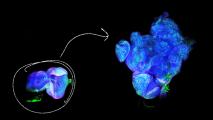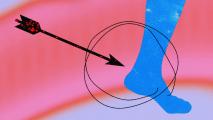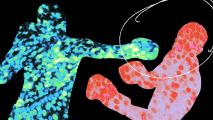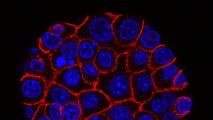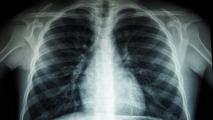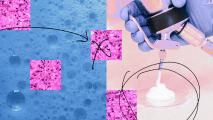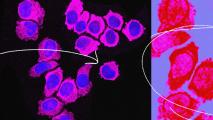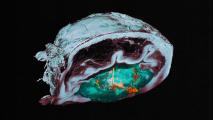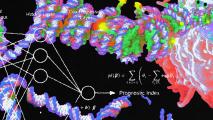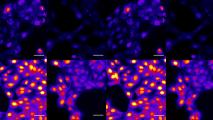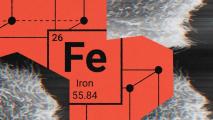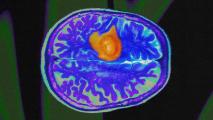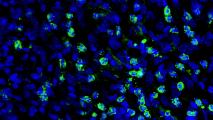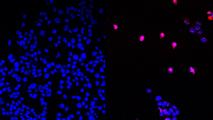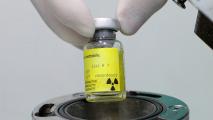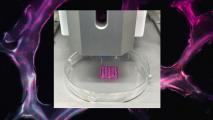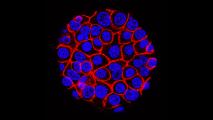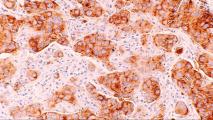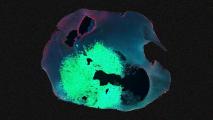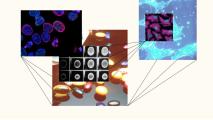Field: Cancer
New study challenges long-held assumption about cancer
Genetic mutations may not be necessary for cancer to develop, challenging a long-held assumption about the disease.
Personalized cancer vaccines are having a moment
Personalized cancer vaccines were a recurring theme at the annual meeting of the American Association for Cancer Research in 2024.
Cancer vaccine for dogs appears to nearly double survival rate
Yale researchers have developed a cancer vaccine for dogs that appears to increase their 12-month survival rate from 35% to 60%.
How the “powerhouse of the cell” could be cancer’s Achilles heel
Salk Institute researchers have found that rewiring mitochondria could make cancer cells visible to the immune system.
Scientists stole a mutation from cancer and used it to kill tumors
Inserting a mutation found in cancer cells into CAR-T cells enabled them to kill a variety of solid tumors in mice.
New hope for early pancreatic cancer intervention via AI-based risk prediction
To train their machine learning models, MIT researchers used electronic health record data from various institutions across the U.S.
Inhalable sensors could enable early lung cancer detection
MIT engineers have designed diagnostic particles that can be aerosolized and inhaled to find cancer-associated proteins in the lungs.
Drinking this foam could boost an experimental cancer therapy
A drinkable foam packed with carbon monoxide molecules appears to boost the cancer-killing effects of autophagy inhibitors.
Immune cells linked to allergies can kill cancer
The newly discovered cancer-killing abilities of a type of immune cell linked to allergies suggests it could be a new immunotherapy.
Urine-propelled nanobots shrink bladder tumors by 90% in animals
Tiny, radioactive nanobots propelled by urine shrank bladder tumors by 90% in mice, suggesting a new way to target the disease.
Moderna’s mRNA cancer vaccine works even better than thought
Adding Moderna’s mRNA cancer vaccine to a standard melanoma treatment dramatically reduces the risk of death or recurrence.
Chemobrain is real. Here’s what to expect after cancer treatment.
Chemobrain, or chemofog, can significantly affect cancer survivors' quality of life with its social, psychological, and economic impacts.
New AI predicts cancer survival using epigenetics
Researchers from the UCLA train an AI to use epigenetics to predict clinical outcomes for cancer patients.
Walmart now has mammograms, analyzed with AI
Shoppers can now get mammograms at a Walmart in Delaware — and more of the walk-in clinics are set to open in 2024.
Lidocaine makes cancer cells self-destruct, study finds
Lidocaine, a common local anesthetic, activates proteins that cause certain types of cancer cells to self-destruct.
AI diagnoses brain tumors in 90 minutes or less
A new AI that can identify the type of brain tumor a patient has while surgeons are removing it could lead to better outcomes.
Is iron the Achilles’ heel for cancer?
Some cancer cells store high quantities of iron. Iron-activated cancer drugs selectively disrupt cancer cells, without harming healthy cells.
Brain implant lets cancer patients try 20 different drugs at a time
A microdevice that injects up to 20 drugs into gliomas at once could help doctors quickly identify the best treatment for cancer patients.
Existing heart drug may boost treatment for skin cancer
The FDA-approved heart medication ranolazine boosted the efficacy of a BRAF inhibitor in mouse models of melanoma, the deadliest skin cancer.
Targeted therapy kills every type of cancer in the lab
City of Hope researchers are trialing a targeted therapy shown to kill more than 70 types of cancer in preclinical tests.
Radioactive drugs are transforming cancer treatment
Radiopharmaceuticals allow doctors to directly target patients' cancer cells and avoid healthy tissue typically damaged by radiation therapy.
Natural killer cells now have a better shot at destroying cancer
A 3D-printing-based approach could make immunotherapies based on natural killer (NK) cells better equipped to destroy cancer.
New AI predicts who is most at risk of pancreatic cancer
An AI that identifies patients most at risk of pancreatic cancer could lead to earlier diagnosis of the deadly disease.
MIT’s vaccine-enhanced CAR-T cell therapy destroys solid tumors
Adding a cancer vaccine to CAR-T cell therapy, a revolutionary treatment for blood cancers, boosts its efficacy against solid tumors.
Certain diets can starve cancer cells
Low-calorie, intermittent-fasting, and ketogenic diets all can lower the amount of blood glucose available to fuel cancer cells.
Personalized mRNA vaccine preps the body to battle deadly cancer
A new pancreatic cancer vaccine based on mRNA tech was shown to be safe and capable of triggering an immune response in a small trial.
New gel destroys brain cancer in 100% of treated mice
A new brain cancer treatment not only cured 100% of mice that received it, but also trained their immune systems to fight future cancers.
Some cancers shouldn’t be treated
We're detecting and aggressively treating more tumors than ever before. But we're also over-treating more cancers then ever.
New cancer treatment uses “hot blood cells” to target tumors
A new cancer treatment combining immunotherapy, photothermal therapy, and modified blood cells was highly effective in mice.
